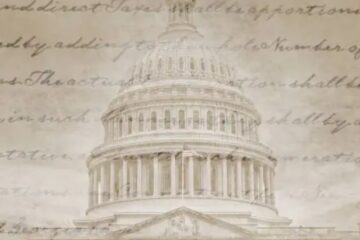True confession. I am an internationalist. Bear with me. That does NOT mean I am not also very supportive of being a nationalist—indeed of being “America First.” Nor does it mean I am a “neocon” in the sense of one wanting to go to war with everyone on the planet. But I was a soldier for almost three decades with several overseas assignments. I know and have seen the importance of a strong US presence around the world, particularly with strategic alliances in Europe and Asia.
I have also learned how to see our very good nation through the eyes of others. I didn’t always agree with their perspective and bias, but I learned from it. And I shared what I thought with my foreign friends concerning their attitudes about us in an effort to push back on their ill-conceived or aberrant views of America. I was also a graduate student in international affairs (Middle East and the Soviet Union), so to be sure I have that perspective. It was an informed one, further reinforced by my interactions with foreign populations and governments.
That said, I would point out that the British Prime Minister Keir Starmer is demonstrating more awareness about what is driving the Trump economic and foreign policy agenda better than the panicked Wall Street worrywarts, who are declaring the end of the world’s economy as we know it. That is silly, and the British PM gets it as noted in a recent Fox News report on 6 April 2025.
“The world has changed, globalization is over and we are now in a new era,” the prime minister’s office said in a statement to the Sunday Times. “We’ve got to demonstrate that our approach, a more active Labour government, a more reformist government, can provide the answers for people in every part of this country.”
Things are changing. The UK gets it. The idea that you can charge the US outlandish tariffs while we sit back and suffer it like obedient subjects is over. As I’ve written in other settings, I do not know how the Trump tariff approach will work out, my sagging IRA notwithstanding. But we are headed to a definite realignment on global trade.
Think about it historically. After WWII, the US had a national interest in rebuilding the economies of a post-war world. In doing so, we recognized then that we needed to allow other economies to get up and get going. After all, our war-based economy was humming on all cylinders at the end of WWII while others were either sputtering or largely collapsed. Indeed, after decades of helping other nations rebuild, we allowed our manufacturing economy to migrate away from our shores and be supplanted by a service economy that was resourced offshore. That was not in our national interest and the American people have come to know it through President Trump’s appeal for his election. Don’t complain about his tariffs as the carping-crowd is today. He warned you it was coming. You should have believed him.
However, some credit belongs to former GOP Senator Rick Santorum (R-PA) as one of the first national politicians in the modern era to assert that we needed to bring US industries ashore and reclaim our legacy as a nation that builds stuff, not just consumes it. He wrote as much in 2012.
“Manufacturing once served as the economic backbone of America, and with a strong and robust plan it can once again become one of our greatest strengths. It is a significant part of our heritage. Raised in Butler in the heart of steel country and manufacturing, I saw the destruction of industry and subsequent community devastation because government headwinds made us uncompetitive against foreign companies. Now, 30 years later, the manufacturing sector across America has experienced substantial job loss and decline in output while our competitors such as China are growing rapidly.”
Santorum got it then. Trump got it in 2016 and does to this hour. And now the UK Prime Minister on the far side of the Atlantic understands that America has had it with being had. Welcome to reality.
How should Trump respond to Starmer? This is an opportunity for some realpolitik. The UK is our best friend in the world. We share a common tongue and culture. We love freedom—I’d say we a bit more—but our world vision comports.
A wise move by President Trump would be to ask the UK Prime Minister to engage in a discussion pursuant to a trade deal whereby the US and the UK sets a world example for how to resolve economic interests. It’s a perfect match. And in doing so, other countries will follow suit and look to a reciprocal tariff that makes sense.
How about zero for a starting bid?



0 Comments